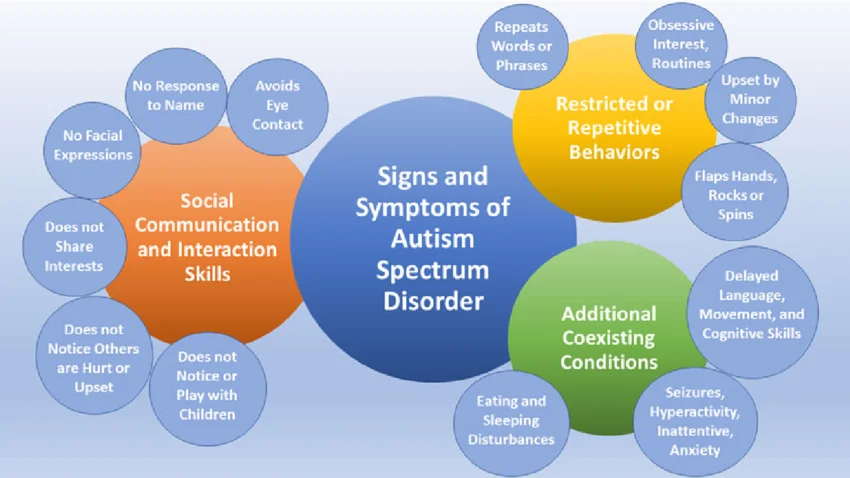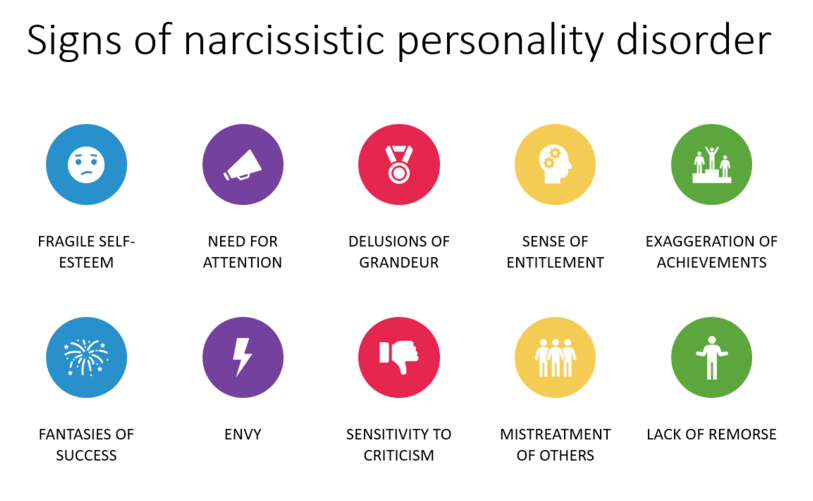Narcissism is one kind of mental illness, a very complex one which affects the thinking, conduct and social engagement of an individual. This research focuses on symptoms of Narcissism as well as its causes, diagnostic criteria used in diagnosing narcissistic personality disorder and different treatment modalities.
Factors that May be Associated with Narcissistic Personality Disorders.
Understanding Narcissism
In its simplest terms narcissism comprises various attributes marked by self-adulation and entitlement as well as lack of empathy. Some degree of narcissistic traits may be considered normal but individuals with Narcissistic Personality Disorder exhibit pervasive and inflexible pattern of these traits which significantly disrupt their lives.
Distinguishing Between Healthy Narcissism and NPD
It is crucial to differentiate between healthy narcissisms where one has a good self image and confidence from pathological ones such as those seen in NPD whereby they have an inflated sense of self-importance, constantly seek admiration from others without considering others’ feelings.
Spectrum of Symptoms
NPD symptoms emerge in different ways across individuals with varying degrees of intensity. Common symptoms include:
- High Self-esteem and Conceit: Individuals who have NPD frequently overstate their successes and talents considering themselves superior to others.
- Lack of Empathy: They are not empathetic neither do they understand other people’s feelings or needs; hence the development of interpersonal difficulties.
- Exploitative Tendency: People with NPD normally exploit others without a feeling of guilt or any consideration to their welfare.
- Fragile Self Esteem: Inside, individuals having NPD usually have an easily hurt ego though they seem very arrogant on the outside, which can be easily hurt by any criticism or rejection.
- Craving for Admiration: They constantly seek validation and admiration from other people believing that they should always be treated in a special way and recognized.

Exploring the Roots of Narcissistic Disorder
Genetic Causes
Although the cause is still unknown, studies indicate that NPD can arise from genetic factors and neurobiological factors. For example, some genes polymorphisms and brain abnormalities have been shown to be associated with narcissism.
Early Childhood Experiences and Environmental Influences
The early experiences in life contribute much to the development of personality traits including those that are typically regarded as narcissistic characteristics. Neglected children, abused children or those who were given too much attention may become more likely to develop NPD later in life.
In addition, families that have dysfunctional such as those that have permissive or authoritarian parenting styles have been known to lead to narcissistic behaviors.
Socio-cultural Influences
Cultural Norms and Societal Values. Narcissism can be expressed depending on cultural values and societal norms.
The narcissism, self-love and egotism which are encouraged by individualism, competitiveness and material success drive individuals towards a more selfish and self-centered attitude thereby securing their positions.
Narcissistic Disorder Diagnosis

Diagnostic Criteria
According to the Diagnostic and Statistical Manual of Mental Disorders (DSM-5), for someone to be diagnosed with Narcissistic Personality Disorder (NPD), they must meet certain criteria:
- A pervasive pattern of grandiosity (in fantasy or behavior), need for admiration, and lack of empathy, beginning in early adulthood and present in a variety of contexts.
- Five or more symptoms are required to make a diagnosis:
- Self-important beliefs.
- Preoccupation with fantasies of infinite triumph, potency, genius, elegance, or perfect love
- Belief that one is particular and exceptional and can only be understood by or associate with other special or high-status people
- Requires excessive admiration in order to develop a sense of self-worth.
- Strongly holding to the belief that one is deserving of favorable treatment from others.
- Exploits others for personal gain
- Lack of empathy; lack of capacity to understand others’ feelings as well as take up their perspective.
- Enviousness because he thinks that all his colleagues would want his job.
Looking at NPD Treatment Options
Psychotherapy Approaches
The foundation of NPD treatment is psychotherapy, especially approaches like Cognitive-Behavior Therapy (CBT) and Dialectical Behavior Therapy (DBT). These therapies try to challenge negative thoughts patterns, promote self-awareness and better interpersonal skills.
Cognitive-Behavioral Therapy (CBT): CBT assists people with NPD in identifying and changing distorted beliefs and behaviors which will lead to healthier thinking patterns.
Dialectical Behavior Therapy (DBT): DBT focuses on improving emotion regulation, interpersonal effectiveness, and mindfulness as the main areas that need rectification among people who have NPD.
Group Therapy and Supportive Interventions
In group therapy sessions for persons living with NPD, patients can take part in peer support, feedback, as well as interpersonal learning.
Also support groups as well as online communities offer invaluable resources plus validation for those individuals who are trying to navigate the complexities of NPD.
Pharmacotherapy
Although no specific medication exists for treating a patient suffering from NPD, drugs may be prescribed in case there are accompanying symptoms such depression or anxiety or even impulsivity. On a case-by-case basis antidepressants mood stabilizers, antipsychotic agents might also be employed.
Conclusion:
In conclusion, a deep knowledge of its complexity and implications is needed to understand this condition. Consequently, we discuss the symptoms showing their range as well as possible causes and evidence-based treatment options in order to promote understanding and compassion for NPD individuals and their families.
Most Frequently Asked Questions (FAQs)
Q: Is there any treatment for narcissism?
A: Narcissistic Personality Disorder has no cure; however some therapy such as cognitive-behavioral therapy (CBT) or dialectical behavior therapy (DBT) may help manage symptoms and improve people’s relationship with one another.
Q: Who gets more affected by Narcissistic Personality Disorder; men or women?
A: Although it seems to occur most frequently among males, it can also happen in females too.
Q: What leads to Narcissistic Personality Disorder?
A: No one knows the cause of NPD exactly but it is believed that genetics, environment aspects and psychological variables contribute together.
